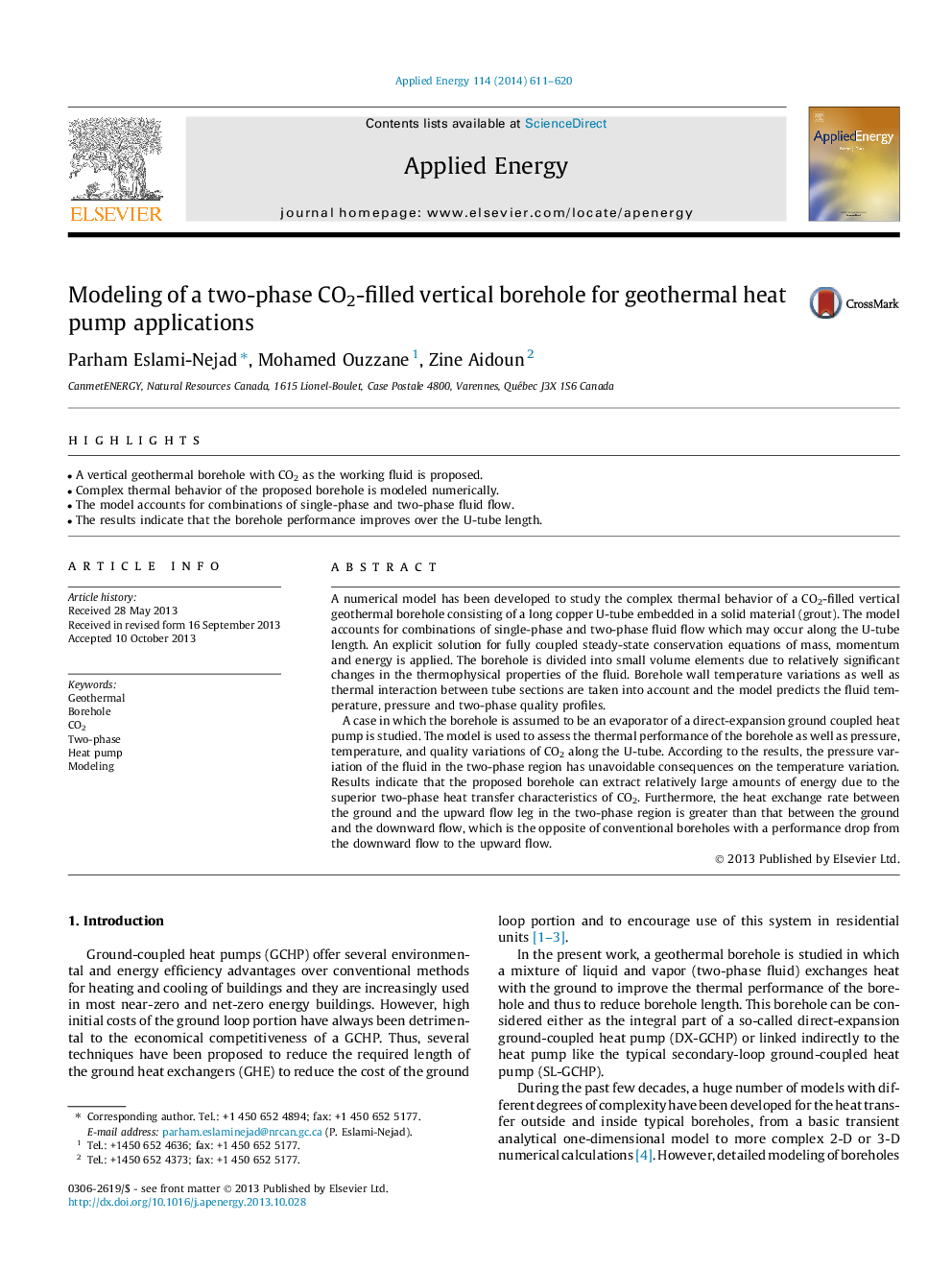| Article ID | Journal | Published Year | Pages | File Type |
|---|---|---|---|---|
| 6691683 | Applied Energy | 2014 | 10 Pages |
Abstract
A case in which the borehole is assumed to be an evaporator of a direct-expansion ground coupled heat pump is studied. The model is used to assess the thermal performance of the borehole as well as pressure, temperature, and quality variations of CO2 along the U-tube. According to the results, the pressure variation of the fluid in the two-phase region has unavoidable consequences on the temperature variation. Results indicate that the proposed borehole can extract relatively large amounts of energy due to the superior two-phase heat transfer characteristics of CO2. Furthermore, the heat exchange rate between the ground and the upward flow leg in the two-phase region is greater than that between the ground and the downward flow, which is the opposite of conventional boreholes with a performance drop from the downward flow to the upward flow.
Related Topics
Physical Sciences and Engineering
Energy
Energy Engineering and Power Technology
Authors
Parham Eslami-Nejad, Mohamed Ouzzane, Zine Aidoun,
